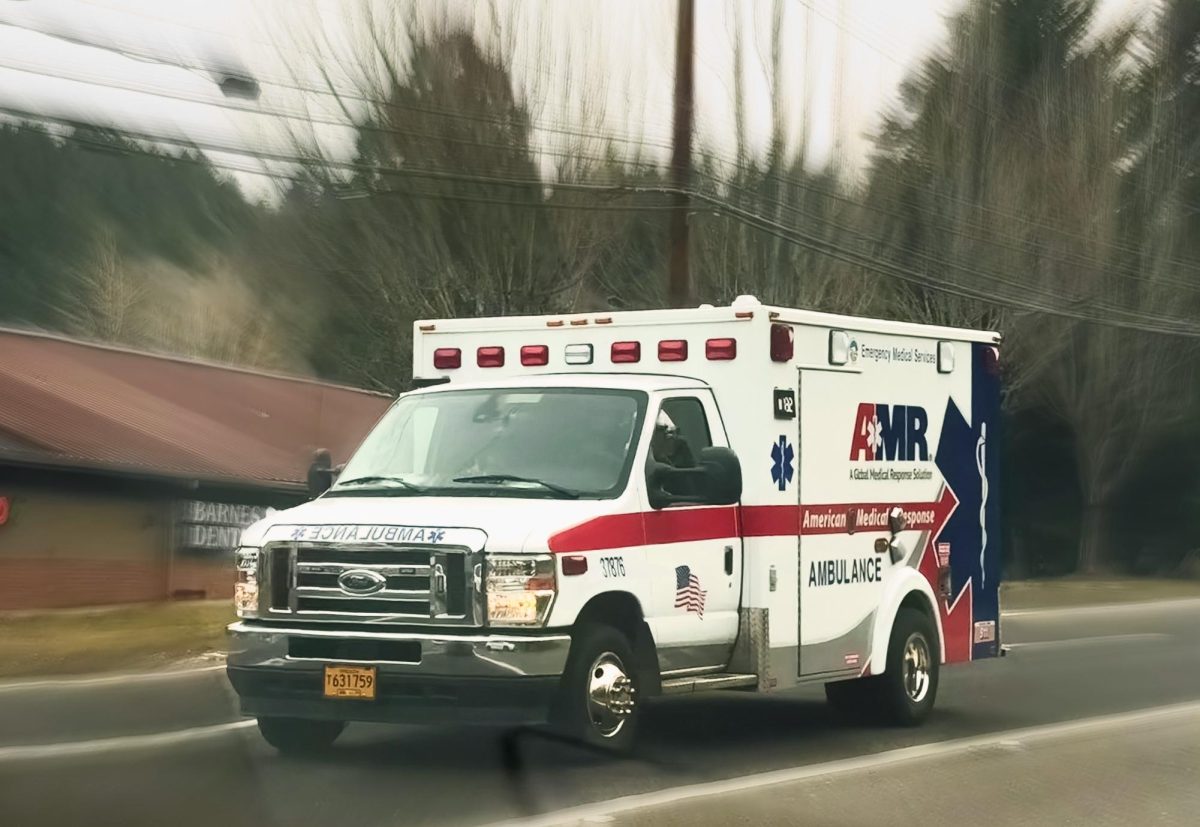For the past year, Portland-area ambulances have struggled to meet the national eight-minute standard response time for serious calls according to reports highlighted by Oregon Public Broadcasting on their website.
The problem? There’s not enough paramedics.
Jan Acebo, the Emergency Medical Service (EMS) Coordinator for Multnomah County has been a paramedic for over 30 years.
“The role of a paramedic is that we provide first aid and advanced level skills to members of the community, and if needed, transport them to a higher level of care in a clinical hospital,” Acebo said.
Paramedics staff emergency vehicles like ambulances and firetrucks.
“As the elderly, population growth and the current culture of drug overdoses adds stress to our systems, there is a greater need for paramedics,” said Acebo.
In a letter to Multnomah County last February, the Portland metro area’s primary ambulance provider American Medical Response (AMR) stressed their need for paramedics.
“We are now short 60 paramedics, with that number increasing by two per month,” the letter said.
Peter Lehmann [father of Cardinal Times reporter Bella Lehmann], a paramedic and firefighter for Tualatin Valley Fire & Rescue (TVF&R), has experienced similar staffing shortages within Washington and Clackamas county.
“You can’t just hire people off the street. They have to go through training and get that paramedic degree before they can get on [an ambulance],” said Lehmann.
Paramedics require more extensive training including obtaining a Emergency Medical Technician (EMT) license, taking an Oregon Paramedic course, finishing a field internship and completing national and state certifications as listed by the Oregon Health Authority’s requirements. All of which, to qualify for more advanced medical procedures, which can create barriers for those entering the profession.
Lehmann also points out how being a paramedic may not seem like a lucrative profession. He believes higher compensation and more benefits could motivate people to enter the field.
“Making it a desirable place to work will definitely draw more people to do it,” said Lehmann.
However, Acebo believes that the experience of being a paramedic itself is invaluable and provides great transferable skills for all healthcare professions from physician assistants to nurse practitioners.
“If people want to help their community and have a love for medicine and the clinical care that goes into it, then this is a great profession that you can take into other avenues,” said Acebo.
Lehmann encourages interested youth to deepen their understanding of the profession through their local emergency service department’s websites, as well as looking into college programs.
“Community colleges like Portland Community College all have programs to become a paramedic, so you can go that route and you’ll have a job waiting for you pretty quickly,” he said.


Sandra LaBelle • Mar 17, 2024 at 7:46 am
The Fire departments lose out by requiring EMTs to be fire fighters, too. Many EMTs don’t want to be firefighters and vice versa.